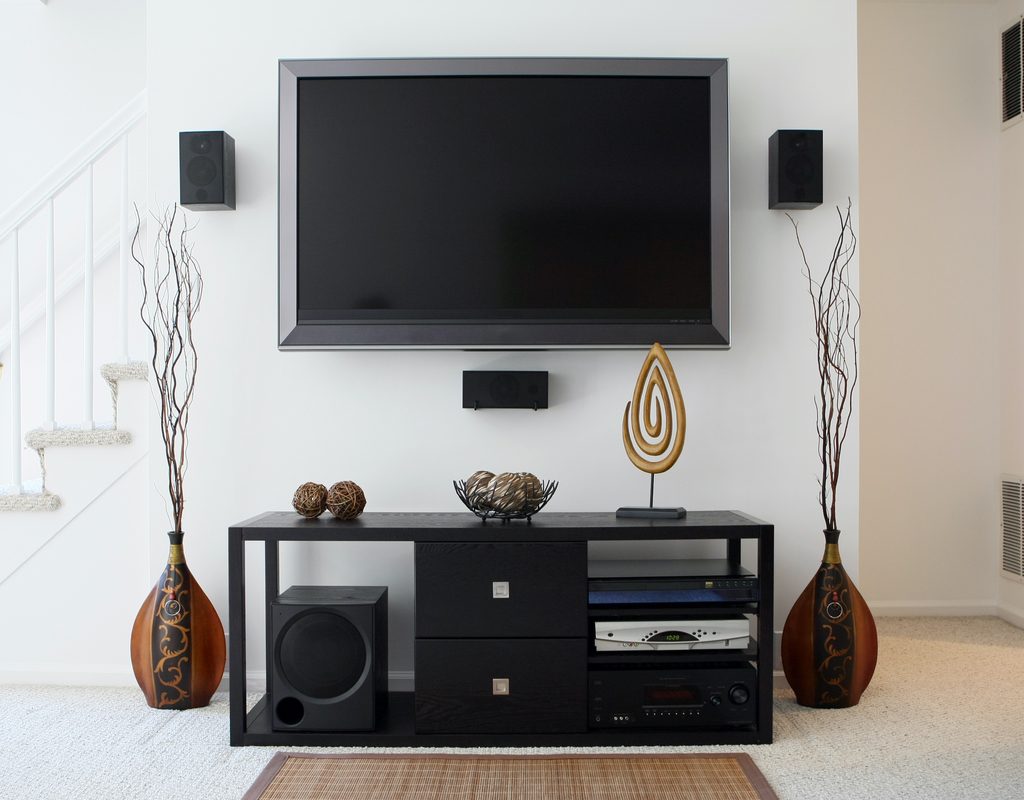Are you tired of seeing dust and gunk built up on and around your TV? That big screen certainly collects dust, and it definitely attracts sticky fingers. Since your TV is a big investment, though, you want to be careful to clean it properly to prevent damage and lengthen its lifespan. Cleaning the screen on your TV can be particularly tricky since it can be easily damaged from using too much pressure or the wrong types of products. We’ll take you through some helpful hints on what products to use, how to dust TVs, and we’ll even tell you how to clean TVs that need more than just dusting.

Helpful TV cleaning products
If you don’t already have these products on hand, you may want to stock up on them, particularly if your TV tends to be a hot spot of smudges and fingerprints. These items will make cleaning your TV both easy and efficient.
Electronic wipes
Electronic wipes are specifically designed for cleaning screens on electronics like TVs, phones, tablets, and computers. They are anti-static, they dry quickly, and they produce a streak-free clean.
Microfiber cloths
Microfiber cloths are a great alternative to electronic wipes since they are washable and are, therefore, friendly to the environment along with your pocketbook. While disposable paper products like paper towels and tissue could scratch or damage your TV screen, microfiber cloths are soft and gentle, and they’re lint-free so that they won’t leave behind pilling or small fibers.
Distilled water
You’ll want to avoid using cleaners on your TV that have alcohol or ammonia on their ingredient list. These chemicals will wear away the helpful anti-glare film on your TV screen. Tap water should also not be used on your TV screen since it contains tiny pieces of sediment and minerals that could damage your screen. Distilled water, however, is free of both harsh chemicals and minerals, so it won’t damage the screen in any way.
Dish soap
Sometimes water alone won’t fully clean that smudged screen. Mild, gentle, and free of abrasive chemicals, dish soap should be used for bigger, stuck-on screen messes.
Step by step: How to clean TVs
Whether you want to get that layer of dust off or you’ve got a sticky, smudgy mess on your TV screen, here are the steps you’ll want to take to get your TV sparkling clean and looking like new.
- Turn off the TV and unplug it for additional safety.
- Wait a few minutes for the TV to cool down.
- Dust the TV from the top down using a duster or a soft, dry microfiber cloth.
- If you still see smudges, use electronic wipes or dampen a microfiber cloth slightly with distilled water. We recommend putting the water in a spray bottle so you can better control the amount of water you’re using.
- Gently wipe the screen with electronic wipes or damp cloth from top to bottom.
- If bigger stuck-on messes remain, put a drop of dish soap in the distilled water spray bottle, dampen the cloth with the solution, and gently wipe the screen again.
- Take a dry cloth and gently wipe it over the screen to dry any damp spots.
Cleaning an older TV
You may have an older box TV lying around that needs a good cleaning. The good news with these dinosaurs is that they are much more durable than newer, flat-screen TVs, and they can withstand a bit more chemical and muscle. Since the screen is likely made of glass, you can use a glass cleaner and paper towel to get the screen sparkling clean. Spray the paper towel with a cleaner like Windex and wipe the TV screen clean like you would a window. The remainder of the TV can be dusted normally, or you can use a cloth or paper towel that’s dampened with a standard household cleaner to get into the nooks and crannies on the back of the TV.

Dos and don’ts of cleaning your TV
Here’s a quick, at-a-glance look at some of the dos and don’ts to remember when your TV needs a good cleaning.
Do:
- Turn off or unplug your TV and let it cool down before cleaning
- Use distilled water
- Use a cloth that’s safe for screens
- Spray the cloth to dampen it
- Use dish soap solution for stuck-on messes
Don’t:
- Clean the TV when it’s on
- Spray liquid directly on the TV
- Use tap water
- Use cleaners containing ammonia or alcohol
- Use paper products on the screen
- Use a soaked or dripping cloth
- Push on the screen or scrub roughly




